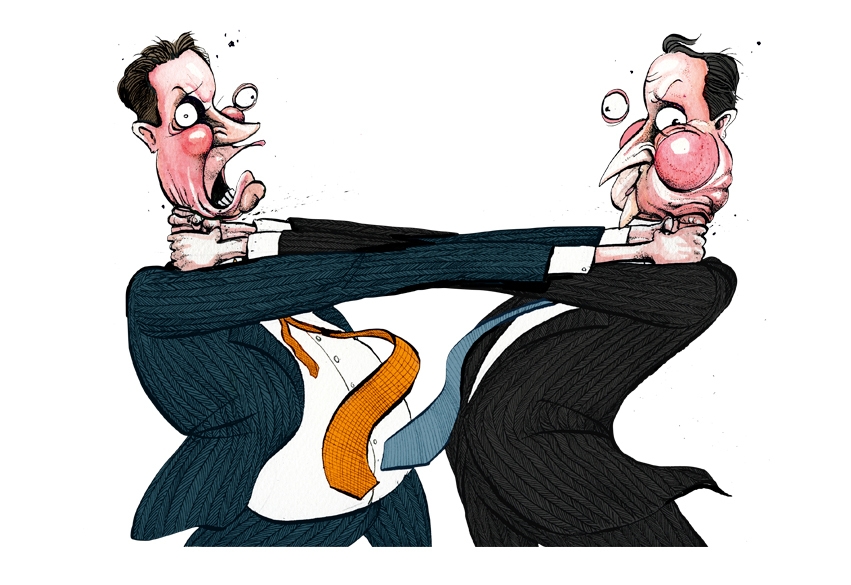Finally, Lords reform becomes interesting: it could be the issue that splits the coalition. Lord Oakeshott’s
admission of this yesterday has made the newspapers today — but it will come as no surprise to Spectator readers. James Forsyth
drew out these battle lines for his cover story last week, and it’s worth reprising his arguments as the
rest of the press has yet to catch up.
Self-preservation is a powerful force in politics. Even if the Lib Dem vote recovers, it’s likely to do so in different constituencies, meaning most Lib Dem MPs are likely to lose their seats. As
Lembit Opik’s music career demonstrates, it’s tough to find work out there. Making it to a
revamped Lords is their best option. And the new upper chamber could be constructed in such a way to make the Lib Dems a deciding factor. Many Tory MPs are baffled as to why Lib Dems care about
constitutional reform so much. But for many Lib Dems, the mission is to rig the voting system so the tail can always wag the dog. If the Lib Dems had a motto, it would be one a line by Dotty in Tom
Stoppard’s play Jumpers: ‘It’s not the voting that’s democracy, it’s
the counting.’
The stakes are higher still. James also reveals that Nick Clegg has threatened to pull the plug on the boundary review (which should give the Tories about 20 more seats) unless Lords reform is
passed. As James says in his piece, this is how business is conducted in the coalition now. They thought it was a rough phase, but now both parties are reconciled to their coalition being one of
threats and recrimination. Liam Fox said on Sunday Politics yesterday that Tories are five-sixths of this coalition. And yet the
government is run 50/50 by a Quad (whose workings were outlined by James’ political
column a fortnight ago).
And the next stage in this drama? A Lords rebellion is now underway. The Tory ringleaders think they can pull off a Euro-scale rebellion of at least 81 MPs. As far as these Tories are concerned, it
is not worth handing the Lib Dems the permanent balance of power in the Lords for staying in the coalition when they have nowhere else to go. On today’s polls, the Lib Dems would go from 57
seats to just 14. Are they really going to call an election now, and end their careers?
In James’ piece, he puts 2014 as the more likely date of the next election. Even that may be optimistic: British peacetime history normally shows coalitions lasting two years at most. Ours is
an adversarial politics, our parliament is one which encourages fear and loathing. Increasingly, such traits are coming to characterise the coalition.
 Fraser Nelson
Fraser Nelson
What’s going on over the Lords — and where to read about it






Comments